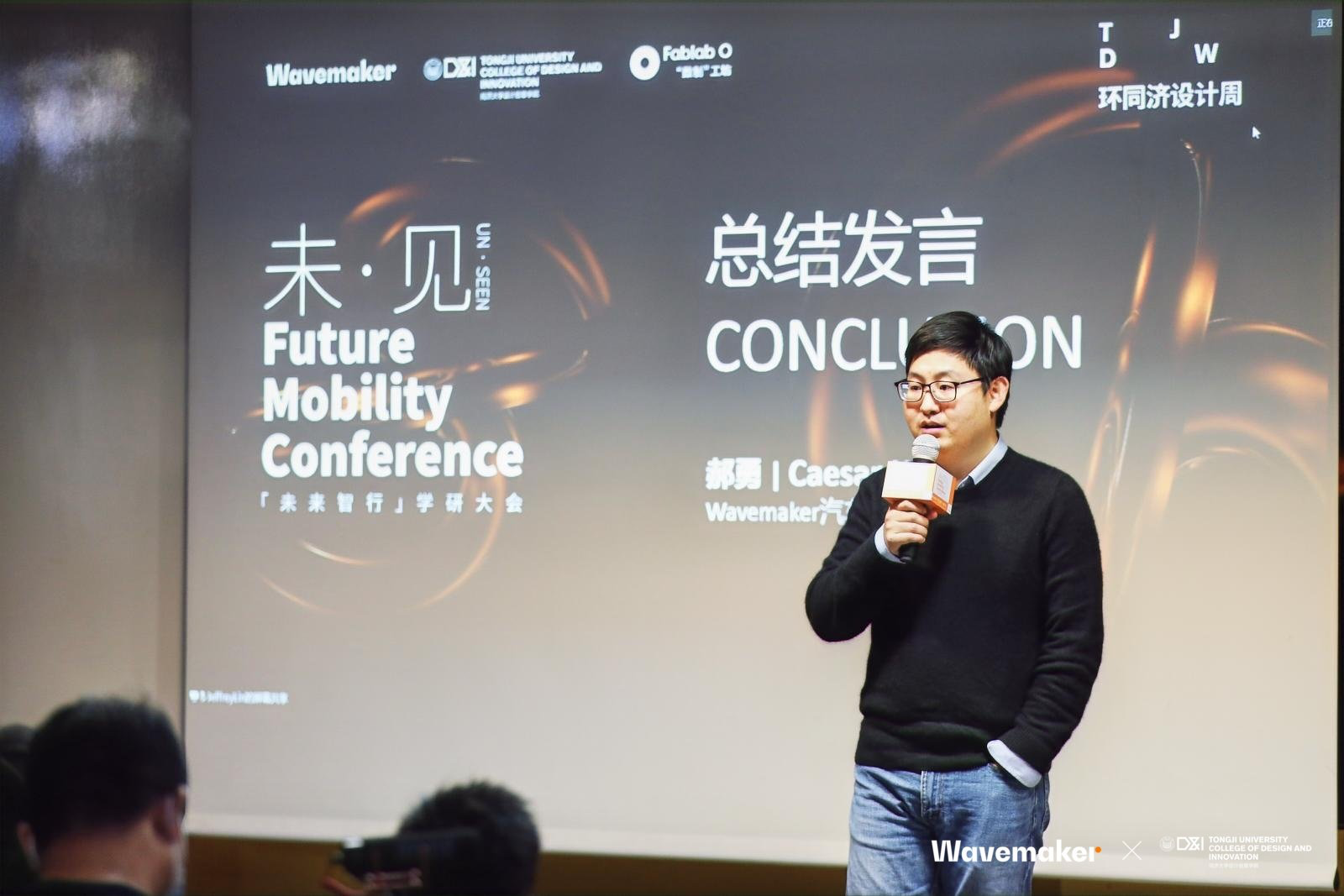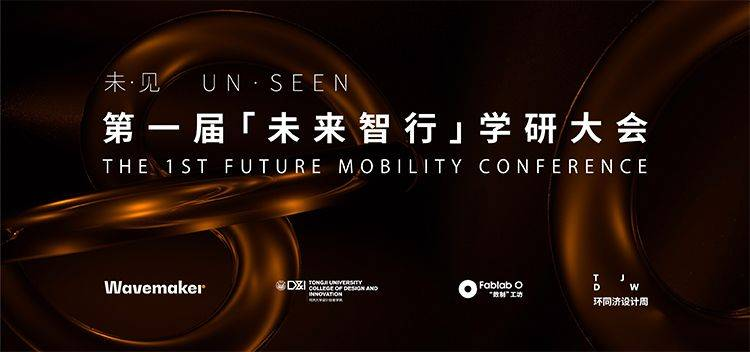On December 5th, 2021, the First Future Mobility Conference organized by UN·SEEN and Fablab O|China, a member of MIT’s global Fablab open laboratory network and the first laboratory in mainland China, was held at the auditorium of Tongji University’s School of Creativity and Design.
The conference aimed to explore the value and ecological transformation trend of the automotive industry under global issues such as artificial intelligence and sustainable development, and to gain a fresh perspective on the future of cars and transportation from a design standpoint. Ding Junfeng, an associate professor at the School of Creativity and Design of Tongji University, and Jose Campon, CEO of WPP’s global media investment management group GroupM’s China operation UN·SEEN, attended the conference and delivered speeches.
During the conference, UN·SEEN CEO Jose Campon talked about the development and transformation of the automotive industry, stating that “looking back at history, the key driving forces for the transformation of cars have always been the environment, energy, technology, and demand. With the rapid development of battery technology, AI, and 5G, the role, culture, and value of cars are evolving at an unprecedented speed. In 10 years, by 2035, we will face a whole new world.”
The conference centered on four themes: environmental sustainability, AI technology and metaverse, the 15-minute community life circle, and the culture and value of cars. Based on design thinking, a series of scene exploration and innovation strategy design workshops were conducted to delve into innovative and forward-looking issues closely related to the industry’s development. Many outstanding ideas and projects were also born in the several hours of group competition segment.
Carefully observing today’s society, we can see that technological innovations represented by the third industrial revolution, smart cities, mobile Internet, 5G, big data, artificial intelligence, and blockchain have not only brought new changes to people’s travel but also reshaped the culture and value of traditional cars with new concepts such as smart transportation, autonomous driving, and sharing economy.In the context of China’s goal of “dual-carbon” and carbon peak and neutrality, the future automotive industry is considering how to more effectively utilize clean energy and seek new prosperity under the premise of sustainable development. Meanwhile, pioneering companies and cities around the world have begun to envision more sustainable integrating ways of transportation and living scenarios. For instance, Google Sidewalk Lab has constructed a real-world scenario in Toronto to model future cities, while Shanghai has taken the lead in sketching out the future of urban communities with the concept of a 15-minute life circle, allowing all necessary information resources to be obtained within a walkable distance of 15 minutes.
The transportation sector of the future will undoubtedly undergo profound changes. When traditional experiences and cooperation methods cannot meet the vision of future transportation, when environmental issues and homogenization of technology accelerate, what kinds of transformation will the future of transportation and automotive industry undergo? Against this background, this conference focuses on the theme jointly promoted by government policies, academia, and industry, exploring the opportunities and challenges faced in achieving “future intelligent transportation” through a highly integrated form of “industry, academia, research,” and communication.
Finally, Han Yong, General Manager of Wavemaker Automotive Business and Joint Initiators, summarized, “Today’s event showed me that even under foreseeable difficulties such as energy, climate, pandemics, etc., our students still have the best intentions to help society, communities, and even people around them – making positive efforts to bring more convenient, healthier, and better-quality travel experience. We hope that in the future, more students from manufacturers, brands, and media will participate in our activities, not only to discover more business opportunities but also to have a clear vision of the future development of the transportation industry. What we have not seen before is now a reality!”
🔗Source: Wavemaker China

This article is a translation by ChatGPT of a Chinese report from 42HOW. If you have any questions about it, please email bd@42how.com.
